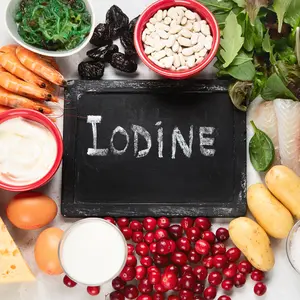
Organic Foods, Farming and Health
Organic Foods, Farming and Health
The Brain Benefits of Omega-3s
The human brain is made mostly of fat, and omega-3 fatty acids are among the most important for keeping it healthy and nourished. Omega-3 refers to a group of fatty acids that are essential for health. DHA (docosahexaenoic acid) and EPA (eicosapentaenoic acid) are two of the most important types of omega-3 fatty acids for the brain and heart. DHA makes up a large portion of brain fat and plays a key role in communication between brain cells, learning, and memory. EPA helps reduce inflammation and supports overall brain function.
These fats are especially crucial during pregnancy and early childhood for brain development, but they remain important throughout life.
Because the body produces only limited amounts of DHA and EPA, people rely on dietary sources like fatty fish, walnuts, flaxseeds, or supplements to maintain healthy levels. Omega-3s help protect brain cells, reduce inflammation, and support blood flow, all of which contribute to better cognitive performance.
A systematic review published in Cureus examined nine clinical trials published between 2010 and 2022 and looked at how omega-3 supplements affect brain function. Across the nine trials, 1,319 participants received either omega-3 supplements or a placebo, and researchers measured memory, attention, executive function, and blood flow in the brain.
Analyzing the collective findings of the included studies, researchers found that omega-3 supplementation improved several aspects of cognition. People taking 2 grams of fish oil had higher levels of oxygen in the brain during tasks, indicating better circulation. Supplements also increased levels of DHA and EPA in the blood, indicating that the body absorbed the nutrients effectively. In one trial, participants on omega-3s showed a 26 percent improvement in executive function compared with those taking a placebo, and some older adults and lonelier participants saw notable gains in memory recall.
The research also highlighted that EPA and DHA may work differently in the brain. EPA seemed to improve actual task performance, while DHA boosted brain activity even if it did not always lead to noticeable changes in behavior. Overall, omega-3 supplements were found to be safe and well-tolerated.
Experts recommend getting omega-3s primarily through diet, especially fatty fish, though supplements can help those who do not get enough from food. Regular intake of omega-3s can support memory, learning, attention, and overall cognitive health, while also helping maintain healthy blood flow in the brain.


 By
By






